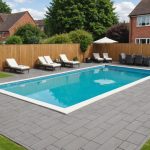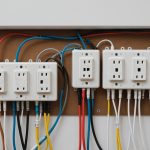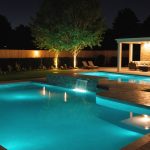Creating a restful environment is essential for quality sleep, especially for families navigating the demands of modern life. Smart technology in bedrooms can enhance sleep hygiene by optimizing lighting, temperature, and sound. This guide offers UK families practical tips to integrate these tools into their nightly routines. Explore how to transform your bedroom into a sanctuary that promotes better sleep, leading to healthier and happier lives for every family member.
Understanding Sleep Hygiene
In today's fast-paced world, sleep hygiene is often overlooked, yet it plays a crucial role in our daily lives. At its core, sleep hygiene refers to the practices and habits that contribute to sleep quality and ensure a restful night. Good sleep hygiene is essential for maintaining both physical and mental health, as it directly impacts our overall wellbeing.
Cela peut vous intéresser : Step-by-Step Guide to Installing a Rainwater Harvesting System in Your UK Townhouse
Key principles of healthy sleep practices include maintaining a consistent sleep schedule, creating a comfortable sleep environment, and avoiding stimulants before bedtime. A regular bedtime routine helps regulate the body's internal clock, making it easier to fall asleep and wake up at the same time each day. Additionally, a comfortable sleep environment—dark, cool, and quiet—promotes deeper, more restorative sleep.
The impact of sleep hygiene on health cannot be overstated. Poor sleep hygiene can lead to sleep disorders, decreased cognitive function, and even chronic health conditions such as obesity and heart disease. On the other hand, adopting healthy sleep practices can improve mood, enhance concentration, and boost the immune system. By prioritising sleep hygiene, individuals can significantly enhance their quality of life and overall health.
A découvrir également : Smart Strategies for UK Homeowners: Designing an Entryway to Maximize Heat Retention and Minimize Loss
The Role of Technology in Sleep Hygiene
Incorporating smart technology into sleep hygiene practices can significantly enhance sleep quality. Devices like smart mattresses, sleep trackers, and white noise machines are designed to optimise the sleep environment. These technologies monitor sleep patterns, providing insights into how one can improve their sleep routine. For instance, sleep trackers analyse sleep cycles and suggest adjustments to achieve better rest.
Sleep technology offers various benefits by tailoring the sleep environment to individual needs. Smart lighting systems can simulate natural light patterns, promoting the body's natural circadian rhythm. Meanwhile, white noise machines block disruptive sounds, creating a more conducive atmosphere for uninterrupted sleep. These technologies work in tandem with traditional sleep hygiene practices, like maintaining a consistent sleep schedule, to bolster overall sleep quality.
However, it's crucial to find a balance between using technology benefits and reducing screen time before bed. Excessive screen exposure can impede melatonin production, a hormone vital for sleep. To mitigate this, individuals can use blue light filters or set devices to night mode in the evening. By combining smart technology with mindful screen use, one can enhance their sleep hygiene without compromising on quality rest.
Recommended Smart Devices for Sleep Enhancement
Integrating sleep devices into your routine can transform your sleep quality. With various smart gadgets available, it's essential to choose the right technology for your needs.
Sleep Tracking Devices
Sleep tracking devices are pivotal in understanding sleep patterns. Popular models like Fitbit and Oura Ring provide detailed insights into sleep stages and disturbances. These smart gadgets help users identify habits affecting their rest and suggest improvements.
Smart Mattresses
Smart mattresses like Sleep Number and Eight Sleep offer tailored support and temperature control. They adapt to your body, ensuring optimal comfort throughout the night. Features to look for include adjustable firmness and sleep tracking capabilities.
White Noise Machines
White noise machines such as LectroFan and Marpac Yogasleep are renowned for their ability to mask disruptive sounds. By creating a consistent auditory environment, these devices promote deeper, uninterrupted sleep.
When selecting sleep-enhancing devices, consider user reviews and specific features that align with your preferences. Many users report improved sleep quality and increased energy levels after incorporating these technologies. By choosing the right technology recommendations, you can enhance your sleep hygiene and overall well-being.
Practical Implementation Tips for Families
Creating a sleep-friendly environment for the entire family can be both practical and beneficial. Integrating smart technology into your home can aid in establishing effective sleep strategies. For instance, smart lighting systems that mimic natural daylight can help regulate the body's circadian rhythm, making it easier for children and adults alike to wind down at night.
Establishing consistent family routines is essential. Incorporate technology by using devices like sleep trackers to monitor sleep patterns and adjust bedtime activities accordingly. This can help identify what works best for each family member, ensuring everyone gets the rest they need. Encourage activities that promote relaxation, such as reading or listening to calming music, as part of the nightly routine.
Managing children's screen time is crucial in promoting good sleep hygiene. Set limits on device usage before bed to prevent disruptions in melatonin production. Consider using blue light filters on devices or establishing a "no screens" rule at least an hour before bedtime. By creating a balanced approach to technology use and family routines, families can foster a healthier sleep environment and improve overall wellbeing.
Family-Oriented Strategies for Better Sleep
Creating a sleep-friendly environment is vital for promoting healthy sleep habits among family members. Children's sleep health is particularly important, as it impacts their growth and development. Educating children about the importance of sleep hygiene can empower them to adopt better sleep practices. Explain how consistent sleep routines contribute to feeling rested and ready for the day.
Involving the entire family in improving sleep habits can be both fun and effective. Begin by setting a regular bedtime for everyone, ensuring consistency. Implement relaxing pre-bedtime activities such as reading or gentle stretching. Encourage open discussions about sleep, allowing children to express any difficulties they face.
To maintain consistency in sleep routines, consider creating a visual schedule. This can help children understand what to expect each evening. Additionally, limit stimulating activities and screen time before bed, as they can disrupt sleep patterns. Encourage activities that promote relaxation and prepare the body for rest.
By integrating these family sleep tips, you can foster a supportive environment that prioritises children’s sleep health. This approach not only enhances individual wellbeing but also strengthens family bonds through shared routines and understanding.
Relevant Research and Statistics for UK Families
Exploring the landscape of sleep statistics among UK families reveals insightful trends and challenges. Recent UK health studies highlight that a significant portion of the population struggles with inadequate sleep. According to the Sleep Council, nearly half of the UK adults report insufficient sleep, impacting their daily functioning and overall health.
Research delves into the role of technology in sleep hygiene, showing a dual impact. While sleep research indicates that smart devices can enhance sleep environments, excessive screen time remains a concern. A study by King's College London found that children who use screens before bed are more likely to experience disrupted sleep patterns. This underscores the importance of balancing technology use with traditional sleep practices.
Health organizations, including the NHS, offer recommendations to improve sleep hygiene. They advocate for limiting screen exposure before bedtime and creating a consistent sleep routine. Emphasising a sleep-friendly environment, these guidelines suggest maintaining a cool, dark, and quiet bedroom to support restful sleep.
For UK families, understanding these sleep statistics and integrating expert advice can lead to improved sleep quality. By aligning with health recommendations, families can foster healthier sleep habits and enhance overall wellbeing.











